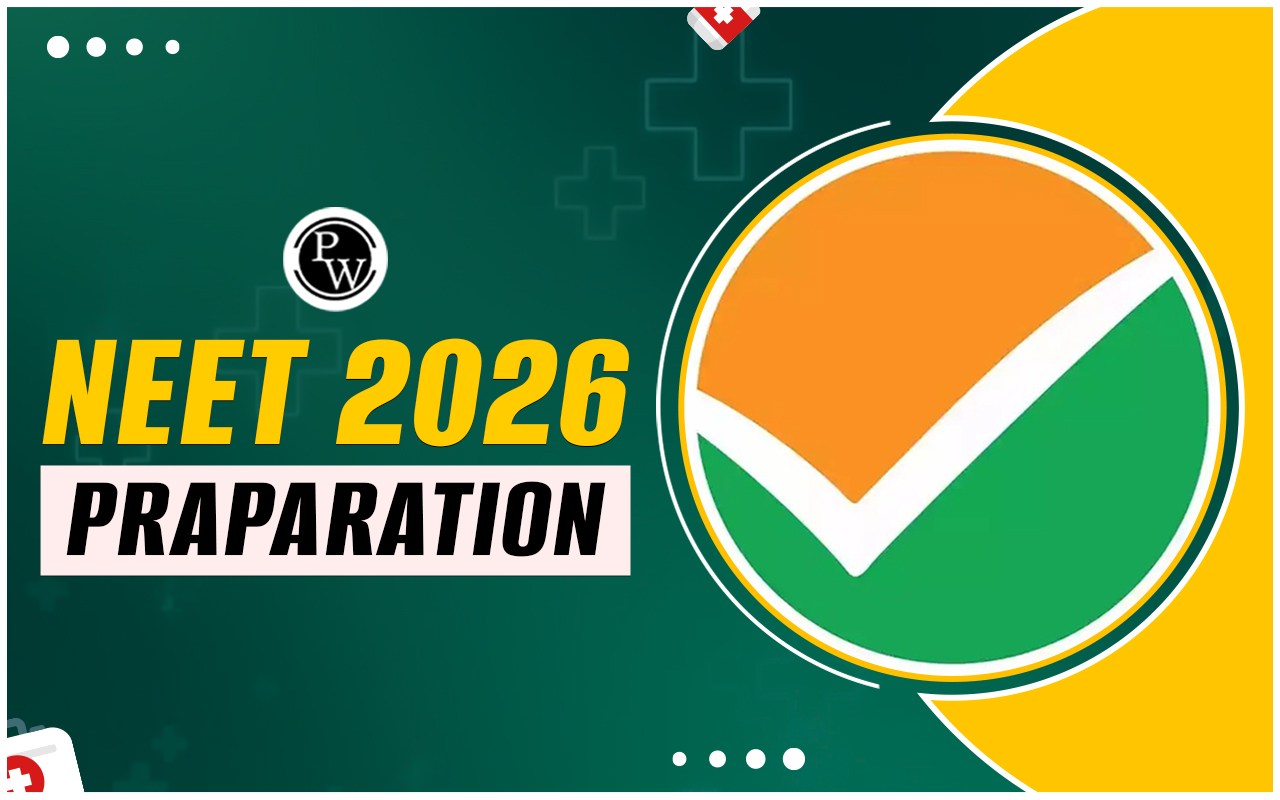
Dermatologist doctor: Dermatology is a branch of skin, hair, and nail studies. Dermatologists are doctors who specialize in problems affecting the skin and hair. A Dermatologist doctor can treat hair, scalp, and nail problems. Students who want to become Dermatologist doctors can enroll in various courses in Dermatology. Read the full article to learn How To Become A Dermatologist?
NEET UG 2024 Application Form Out
NEET 2024 Information Bulletin Released
How To Become a Dermatologist in India?
Dermatologist doctor is a challenging but rewarding career path. People who want to become Dermatologist doctors should start preparing for the relevant exams after the 12th. The instructions below will show you How To Become A Dermatologist In India after the 12th.- You must have a 12th-grade point average of 50% in Physics, Chemistry, Biology/Biotechnology (PCB) from a recognized institution.
- You must have a high NEET UG score.
- To complete four years of medical school, you must enroll in an MBBS program.
- The next stage is obtaining a one-year dermatology internship or another field.
- Following an internship, three years of residency or continuing training in dermatology is also required.
- Aspirants can also seek a master's in Dermatology and pursue degrees such as MSc in dermatology or MD.
- Further specializations will necessitate an MCh degree from a Medical Council of India-approved institution. Cardiothoracic surgery, plastic surgery, urology, and other areas are included in the specializations.
- Following that, applicants can aspire for a 1-2 year fellowship. A fellowship is optional. However, it does provide additional training in a dermatology speciality.
- Finally, obtaining a license to practice in this field of study is critical to becoming a Skin Doctor.
What are the duties of Dermatologist doctors?
A Dermatologist doctor's duties include obtaining case histories and developing patient treatment strategies. A skin doctor is responsible for the following tasks:- Dermatologist doctors meet with patients, document their case histories, examine them, and analyze their core concerns.
- After determining the primary disease, Dermatologist doctors consult with patients to discuss the diagnoses and develop a treatment strategy.
- A one-time prescription or drugs for a set length could be used as treatment.
- Skin doctors may also handle and analyze cosmetic concerns such as birthmarks, wrinkles, acne, scars, pigmentation, etc.
Skills Required to Become a Dermatologist Doctor
To do honor to the field of skin specialists, some talents must be possessed. However, most skills can be learned over time after getting a degree in the discipline. Some essential abilities for candidates aspiring to become effective Dermatologist doctors are listed below.- The student should be enthusiastic about pursuing a profession as a Dermatologist doctor .
- To research and treat patients, the person must be patient.
- To treat people properly, the student must be capable of active listening.
- The candidate must be able to work extended hours.
- The candidate must solve problems, have good eyesight, and be agile enough to do hand-related duties during their hospital or medical facility training on biopsy, skin surgery, etc.
- The aspirant must be proficient in English and the most challenging science topics such as Physics, Microbiology, Chemistry, Anatomy, Pathology, and Biology.
Types of Dermatologist Doctors
Dermatologists are of many types. The types of Dermatologist doctors are as follows:Dermatopathologists
| Dermatopathologists | |
| Details | A dermatopathologist specializes in skin pathology, analyzes different skin disorders and is qualified both in pathology and dermatology. These types of Dermatologists collaborate with primary care to examine the different skin diseases and develop a diagnosis for them. |
| Average Annual Salary | INR 5,65,000 |
Immune Dermatologists
| Immune Dermatologists | |
| Details | An Immunodermatologist is a specialized Dermatologist whose job is to diagnose and treat different skin disorders characterized by the defective responses of the various body’s immune systems. |
| Average Annual Salary | INR 4,80,000 |
Cosmetic Surgeon
| Cosmetic Surgeon | |
| Details | Cosmetic Surgeons generally specialize in improving or correcting the appearance of the physical features of the face or body. These doctors perform surgeries such as Liposuction, Rhinoplasty, and Rhytidectomy. These doctors must also work with accidental burn victims to reconstruct damaged body areas. |
| Average Annual Salary | INR 4,00,000 |
Tele Dermatologists
| Tele Dermatologists | |
| Details | Tele Dermatologists use e-health applications and telemedicine to cure certain diseases. In this field, doctors use telecommunication technologies to transfer medical information to patients Bachelor's or Master's Degree in Dermatology or a relevant field. |
| Average Annual Salary | INR 4,50,000 |
Scope of Dermatology
Taking dermatological studies after the 12th grade is one of the most profitable job options. People in our society are growing more sensitive to their appearance, for which they see dermatologists, which is why cosmetic dermatology courses after the 12th are becoming increasingly popular among students. Dermatologists are in high demand in nursing homes, dispensaries, skincare clinics, and hospitals, both private and public. Those who enjoy instructing may also apply for careers as university lecturers.Dermatologist Courses without MBBS
The aspirant must be proficient in English and the most challenging science topics such as Physics, Microbiology, Chemistry, Anatomy, Pathology, and Biology. Becoming a successful Dermatologist doctor is difficult, but it is a rewarding career path. If you want to be a Dermatologist doctor , you should choose a program that will give you a foundation to achieve your licensing criteria. The following is a list of widely recognized Dermatology courses that do not require an MBBS:|
Dermatologist Courses without MBBS |
|
Famous Universities for Dermatologist Doctors
Dermatology diplomas, bachelor's and master's programs, and skin-related courses are available from various educational institutions. The following lists some of the world's most prestigious universities.| Universities | QS Ranking 2023 |
| University of South Wales | 45 |
| South Thames College | – |
| Cardiff University | 166 |
| University College Dublin | 181 |
| Boston University | 108 |
| University of Nottingham | 114 |
| Australian Academy of Cosmetic Dermal Science | 0 |
| Victoria University | 701-750 |
Employment Sectors and Job Opportunities
The rising demand for Dermatologist doctors in every part of the world is increasing. There are numerous advantages to studying dermatological sciences at one of the world's most prestigious colleges. Let's have a look at some of the career profiles that students can pursue after finishing the course:| Job Profile | Average Salary |
| Skin Specialist | 12 Lakh |
| Cosmetic Surgeon | 20 Lakh |
| Pediatric Dermatologists | 18.5 Lakh |
| Dermatology Consultant | 16.5 Lakh |
| Medical Representative | 15 Lakh |
| Tele Dermatologists | 16.5 Lakh |
| Clinical Application Specialist | 6 Lakh |
| Dermatology Professor | 18 Lakh |
Benefits and Drawbacks of Becoming a Dermatologist Doctor
The Benefits and Drawbacks of Becoming a Dermatologist Doctor are mentioned below:Benefits
The Benefits of Becoming a Dermatologist doctor are as follows:- Dermatologists doctors are among the top-paid doctors in India and around the world. A Dermatologist doctor's monthly salary is typically approximately INR 80,000.
- The job security of a Dermatologist doctor is robust because doctors are only dismissed or suspended once there is a basis to do so.
- Dermatologist doctor can open their clinics after getting enough expertise.
- Doctors in this discipline treat various skin, hair, and nail disorders, which fascinates their work.
- Skincare products generate a lot of money for pharmaceutical firms nowadays, thanks to dermatology clinics and doctors who sell them all the time.
Drawbacks
The Drawbacks of Becoming a Dermatologist doctor are as follows:- A Dermatologist doctor's career involves many years of study to obtain a specialized degree.
- The expenses for these courses are exorbitant, and if these doctors want to open their clinic, they will need a lot of money.
- One of the most significant disadvantages of a job as a dermatologist is the level of competition in their area.
- These doctors' work schedules are hectic, and they rarely have time with family and friends.
NEET Exam Important Links:
dermatologist doctor FAQs
Is the NEET test required for dermatology?
After passing BHMS, they must take NEET-UG and then MBBS before taking NEET-PG.
Is dermatology a complex subject to learn?
Dermatology is one of the most challenging specialities to attain when getting an MD.
Can I pursue a career in dermatology?
An MBBS degree is required to become a dermatologist.
What exactly is MSc dermatology?
The Clinical Dermatology MSc is a postgraduate study program for medical graduates who want to pursue a career in dermatology.
🔥 Trending Blogs
Talk to a counsellorHave doubts? Our support team will be happy to assist you!

Check out these Related Articles
Free Learning Resources
PW Books
Notes (Class 10-12)
PW Study Materials
Notes (Class 6-9)
Ncert Solutions
Govt Exams
Class 6th to 12th Online Courses
Govt Job Exams Courses
UPSC Coaching
Defence Exam Coaching
Gate Exam Coaching
Other Exams
Know about Physics Wallah
Physics Wallah is an Indian edtech platform that provides accessible & comprehensive learning experiences to students from Class 6th to postgraduate level. We also provide extensive NCERT solutions, sample paper, NEET, JEE Mains, BITSAT previous year papers & more such resources to students. Physics Wallah also caters to over 3.5 million registered students and over 78 lakh+ Youtube subscribers with 4.8 rating on its app.
We Stand Out because
We provide students with intensive courses with India’s qualified & experienced faculties & mentors. PW strives to make the learning experience comprehensive and accessible for students of all sections of society. We believe in empowering every single student who couldn't dream of a good career in engineering and medical field earlier.
Our Key Focus Areas
Physics Wallah's main focus is to make the learning experience as economical as possible for all students. With our affordable courses like Lakshya, Udaan and Arjuna and many others, we have been able to provide a platform for lakhs of aspirants. From providing Chemistry, Maths, Physics formula to giving e-books of eminent authors like RD Sharma, RS Aggarwal and Lakhmir Singh, PW focuses on every single student's need for preparation.
What Makes Us Different
Physics Wallah strives to develop a comprehensive pedagogical structure for students, where they get a state-of-the-art learning experience with study material and resources. Apart from catering students preparing for JEE Mains and NEET, PW also provides study material for each state board like Uttar Pradesh, Bihar, and others
Copyright © 2025 Physicswallah Limited All rights reserved.









